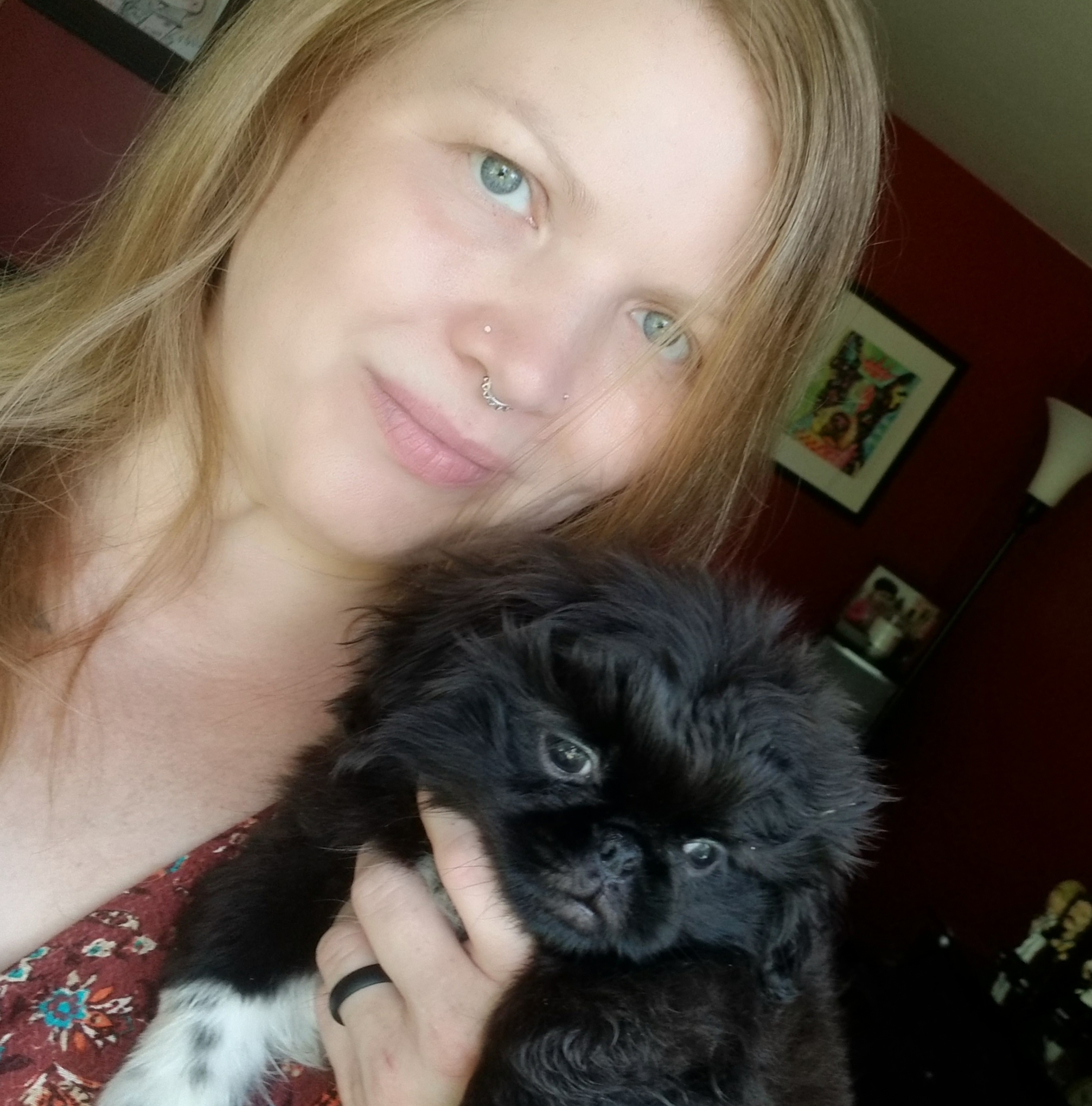Potty Training 101: A Guide to Successful Housebreaking
- Rachel McMichael

- Feb 25, 2024
- 3 min read
Updated: Mar 9, 2024

My family adopted a puppy from a rescue last August. He was almost 12 weeks old at the time and the rescue told me he had zero clue on potty training. In fact, they said he lived outside prior and that he just went to the bathroom wherever. The first few days in the house were rough. Even though I’ve worked with many clients and many dogs on housebreaking, working with my own puppy was not without its challenges. I pretty much always have a supply of enzymatic cleaners under the kitchen sink, and those first couple weeks really put them to the test. It seemed my puppy had to pee every twenty minutes. I began wondering if there wasn’t something medically wrong with him. The truth was, he was just a puppy, trying to figure out his new world and doing the absolute best he could. On the third week, it all came together for him, and I don’t believe he has had an accident since then.
Potty training is an essential aspect of dog ownership. It is a process that requires patience, consistency, and positive reinforcement. But how did I get this confused puppy from peeing every twenty minutes to being completely housebroken in less than 3 weeks?
The most crucial factor was management. If I was unable to watch the pup closely, he was either in a crate or puppy pen. Some of the time he may have even been leashed to me. He did not have full access to the entire home at any time. If I were in a room, we would be gated in that one room together. He could not wander off this way. I could also then watch if he were to indicate having to go, which often looked like sniffing, circling, pacing around or whining for him. By keeping a close eye on him, I was able to catch on to what signs he may give when he has to potty, then get him outside quickly. Supervision helps prevent accidents and form appropriate bathroom habits. I also made sure to come home throughout the day for potty breaks. If you are working a long day, having a dog walker, friend or family come in and give your dog a potty break is ideal.
I stayed consistent. Consistency is key when it comes to potty training. Establishing a routine helps your dog in many ways. For puppies, they often have to go out after they eat, sleep, or play – which means they need to go out a lot! I took the pup out every hour sometimes. Set specific times for bathroom breaks, just as you would for their mealtimes or bedtime. When it is time for a potty break, take them to the designated area and patiently wait for them to do their business. Play or exploration outside can wait until after they’ve eliminated. When they do go, praise, and offer a small but valuable treat immediately following their elimination. You do not want to wait until you get back inside to reward them. You may be going out a lot, but trust that it will get better the more they get it right.
Accidents are bound to happen during the potty-training process. If you catch your dog having an accident indoors, interrupt them calmly and gently, then take them to the appropriate spot immediately. Never scold or punish your pup in any way if they have an accident in front of you. Doing so may result in your pup or dog wandering away from you to potty elsewhere. They may then feel anxious or that you are no longer safe to eliminate in front of – which can really hinder the process. Similarly, if you find that your pup had an accident earlier you really should not punish them for it. Chances are, they’ve already moved on and will not be able to relate the punishment to the accident. Be sure to clean up any mess thoroughly using an enzymatic cleaner, as it should aid in preventing repeat accidents.
Be patient with your dog. When they are struggling with housebreaking, it isn’t just stressful for you, this is hard and stressful for them too. Give them grace. Potty training is truly a journey that requires time, patience, and consistency. Remember, every dog is unique, so be prepared to adjust things as needed to meet their individual needs. With time, dedication, and love, you'll soon celebrate the joyous moment when your dog becomes fully housebroken.



Comments